Who Will Revere US? (Black LGTBQ People, Straight Women, and Girls) (Part 3)
This is Part 3 of a four part article. Immediately following is the introduction to the series, originally published April 23, 2012, for your convenience. Part 1 can be read in its entirety here. Part 2 can be read in its entirety here.
Introduction
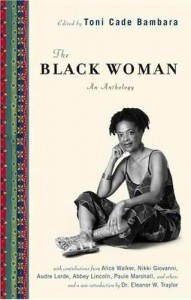 The title of this four part article is a metaphorical nod to the legendary jazz singer, songwriter, actor, and activist Abbey Lincoln (also known as Aminata Moseka) whose essay, “Who Will Revere The Black Woman?” is featured in the ground-breaking anthology The Black Woman. Edited by Black feminist author, screenwriter, and visionary activist Toni Cade Bambara, this all-Black woman anthology focused on the issues most pertinent to Black women and our communities. Originally published in 1970 and reissued in 2005 with a foreword by Dr. Eleanor W. Traylor, The Black Woman was the literary wo/manifestation of the impact of the intersection of the Civil Rights/Black Power movements and the second wave of the Women’s Rights movement on Black women’s lives. In short, Ms. Lincoln’s ageless essay is a demand for justice and protection for Black women. In her concluding paragraph she writes,
The title of this four part article is a metaphorical nod to the legendary jazz singer, songwriter, actor, and activist Abbey Lincoln (also known as Aminata Moseka) whose essay, “Who Will Revere The Black Woman?” is featured in the ground-breaking anthology The Black Woman. Edited by Black feminist author, screenwriter, and visionary activist Toni Cade Bambara, this all-Black woman anthology focused on the issues most pertinent to Black women and our communities. Originally published in 1970 and reissued in 2005 with a foreword by Dr. Eleanor W. Traylor, The Black Woman was the literary wo/manifestation of the impact of the intersection of the Civil Rights/Black Power movements and the second wave of the Women’s Rights movement on Black women’s lives. In short, Ms. Lincoln’s ageless essay is a demand for justice and protection for Black women. In her concluding paragraph she writes,
[…]Who will revere the Black woman? Who will keep our neighborhoods safe for Black innocent womanhood? Black womanhood is outraged and humiliated. Black womanhood cries for dignity and restitution and salvation. Black womanhood wants and needs protections, and keeping and holding. Who will assuage her indignation? Who will keep her precious and pure? Who will glorify and proclaim her beautiful image? To whom will she cry rape?
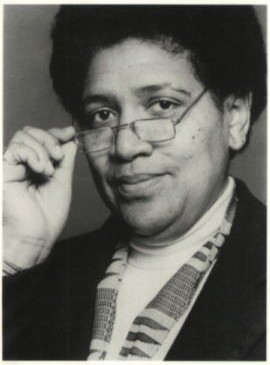 In her 1983 prophetic and timeless essay, “There Is No Hierarchy of Oppression,” self-defined Black feminist lesbian mother warrior poet Audre Lorde writes,
In her 1983 prophetic and timeless essay, “There Is No Hierarchy of Oppression,” self-defined Black feminist lesbian mother warrior poet Audre Lorde writes,
I cannot afford the luxury of fighting one form of oppression only. I cannot believe that freedom from intolerance is the right of only one particular group. And I cannot afford to choose between the front upon which I must battle these forces of discrimination, wherever they appear to destroy me. And when they appear to destroy me, it will not be long before they appear to destroy you.[1]
I am struggling to find the right time to discuss inter and intra-racial gender-based violence in the midst of the justified outrage about the rampant and virulent racialized violence perpetrated against straight Black boys and men. Even with this being Sexual Assault Awareness Month, now doesn’t feel like the best time to write about the gender-based and state-sanctioned violence perpetuated against Black straight women, girls, and LGBTQ (Lesbian, Gay, Bisexual, Transgender, Queer) people both inside of and outside of our racial/cultural communities. I fear that sharing what’s on my heart and mind, might be construed as my taking away from the “real” issue at hand in most Black communities, which seems to be solely white supremacist and/or state-sanctioned racist violence against straight Black men and boys.
Audre Lorde’s writings remind me, however, that discussions on oppression within Black communities should never be taken up within an either/or frame. The diverse herstories/histories and contemporary realities of Black straight women, girls, and LGBTQ people have consistently revealed that the issues that directly impact us often take a back seat, if they even make it into the metaphorical car on the freedom and liberation highway.
There is a collective understanding among many in multi-racial, radical progressive movements, that the white supremacist, patriarchal, heterosexist, imperial, and capitalist power structure is the root of all oppressions in the United States. While I believe that to be true, even in the company of other oppressed people, Black straight women and LGBTQ people are still under attack. Too often we are caught at the intersections of race, gender, and if we identify as LGBTQ, sexuality. In spite of our shared his/herstories of oppression, struggle, and perseverance against the odds, not enough Black people view sexism, patriarchy, misogyny, heterosexism and transphobia with the same kind of activist passion that we view racism, white supremacy, and state-sanctioned violence perpetuated against straight Black men and boys.
The reality is this: when Black straight men and boys are beaten, brutalized, and/or murdered as a result of state-sanctioned and/or white supremacist violence, it becomes (as well it should be) a national issue in the Black community and in a few, definitely not all, instances, the outrage moves beyond the Black community. Yet, when Black straight women, girls, and LGBTQ people are raped, sexually assaulted, beaten, brutalized, and/or murdered as a result of misogynist, patriarchal, state-sanctioned, and/or white supremacist violence, it is too often the victim’s individual issue.
There are so many egregious, known and unknown, cases of racial and gender-based violence perpetuated against all Black people, regardless of their gender, gender identity, and sexuality, that it is literally impossible to write about all of them. I want to highlight a selected few of the far too many, however, to ask Black/African-American/African descended people to consider our responses when any of us have been railroaded into the prison industrial complex, sexually or otherwise assaulted, or murdered. I want us, Black/African-American/African descended people, to consider our responses to issues that affect many as opposed to those issues affecting some of us based on our gender, gender identity, and/or sexuality.
***
Part 3
Chrishaun ‘CeCe’ McDonald
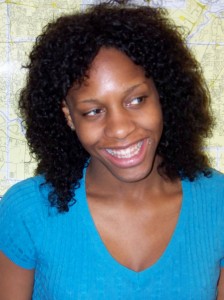 Chrishaun ‘CeCe’ McDonald, a 23-year old African-American transgender woman, with no criminal record, is presently incarcerated and charged with two counts of second-degree murder. In her article, “Jenna Talackova Can Compete, But the Fight Against Trans Injustice Rages On” for the Huffington Post, actress and transgender advocate Laverne Cox, gives a recent recap of Ms. McDonald’s case:
Chrishaun ‘CeCe’ McDonald, a 23-year old African-American transgender woman, with no criminal record, is presently incarcerated and charged with two counts of second-degree murder. In her article, “Jenna Talackova Can Compete, But the Fight Against Trans Injustice Rages On” for the Huffington Post, actress and transgender advocate Laverne Cox, gives a recent recap of Ms. McDonald’s case:
In June 5, 2011 CeCe and a group of her friends, all of whom were LGBT youth of color, were walking in South Minneapolis when a group of white adults began screaming racist and transphobic slurs like ‘niggers,’ ‘faggots’ and ‘chicks with dicks’ at the youth. According to reports CeCe stood up for herself and her friends, stating that they would not tolerate hate speech. Then one of the white adult women smashed her glass into CeCe’s face. The broken glass sliced all the way through CeCe’s cheek, lacerating a salivary gland. A fight ensued, resulting in the death of one of the attackers, Dean Schmitz. CeCe was the only person arrested. She was detained by the police for hours before questioning, and then she was placed in solitary confinement.
Not surprisingly, the white woman who attacked Ms. McDonald wasn’t prosecuted. Ms. McDonald’s case is a clear example of racist and transphobic violence. Presently incarcerated awaiting her trail, this young trans woman could be permanently railroaded into the prison industrial complex. Up until very recently, Ms. McDonald was only receiving support from on-the-ground radical grassroots (not mainstream) feminists and queer people, many of whom are of color.
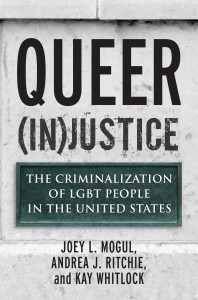 Some queer people are Black and some Black people are queer and more often than not, like most straight Black women and girls, we stand alone at the intersections of race, gender, gender identity, and sexuality. In the 2011 released Queer (In)Justice: The Criminalization of LGBT People In the United States, authors Joey L. Mogul, Andrea J. Ritchie, and Kay Whitlock give readers alarming commentary about the disproportionate rate that LGBTQ people, especially those of color, are incarcerated for “sexual deviance.” Similar to Michelle Alexander’s book The New Jim Crow: Mass Incarceration in the Age of Colorblindness, Mogul, Ritchie, and Whitlock delve into how crime is socially constructed. They show the historical origins of how race constitutes what is considered a crime, while also examining how notions about how gender plus race plus class plus sexuality all inform who is incarcerated and who is not. This is most important to consider when we look at the (relatively speaking) minimal responses to the New Jersey 4 case, and all those cases involving Black LGBTQ people prior and following up to CeCe McDonald’s case.
Some queer people are Black and some Black people are queer and more often than not, like most straight Black women and girls, we stand alone at the intersections of race, gender, gender identity, and sexuality. In the 2011 released Queer (In)Justice: The Criminalization of LGBT People In the United States, authors Joey L. Mogul, Andrea J. Ritchie, and Kay Whitlock give readers alarming commentary about the disproportionate rate that LGBTQ people, especially those of color, are incarcerated for “sexual deviance.” Similar to Michelle Alexander’s book The New Jim Crow: Mass Incarceration in the Age of Colorblindness, Mogul, Ritchie, and Whitlock delve into how crime is socially constructed. They show the historical origins of how race constitutes what is considered a crime, while also examining how notions about how gender plus race plus class plus sexuality all inform who is incarcerated and who is not. This is most important to consider when we look at the (relatively speaking) minimal responses to the New Jersey 4 case, and all those cases involving Black LGBTQ people prior and following up to CeCe McDonald’s case.
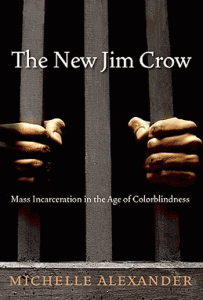 In January 2012, Racialicious published Jessica Annabella’s “Why We Should Support CeCe McDonald.” Ms. Annabella’s article really underscores many of the poignant points raised in Queer (In)Justice. She writes,
In January 2012, Racialicious published Jessica Annabella’s “Why We Should Support CeCe McDonald.” Ms. Annabella’s article really underscores many of the poignant points raised in Queer (In)Justice. She writes,
…CeCe’s story is a portrait of the United States Criminal Justice System. Her story is what is meant when we are told that transgender people, especially transgender women of color, experience disproportionate rates of police harassment, profiling, and abuse. She is living one of the stories rolled into statistics like: trans people are ten to fifteen times more likely to be incarcerated than cisgender (not transgender) people, or nearly half of African American transgender people have spent time in jail or prison. These statistics are the result of all of the ways that transgender people, especially transgender people of color, are denied access to the resources and opportunities that we need to live healthy lives free of violence, discrimination, and oppression. Transgender people consistently experience high levels of harassment in school, extreme levels of unemployment due to discrimination and lack of education, denial of competent medical care, inability to change identification documents, and disproportionate violence and harassment…
On the April 15, 2012 edition of the Melissa Harris-Perry show on MSNBC, she featured a 20-minute ‘Being transgender in America’ segment. In speaking about another case in which a transgender person was savagely beaten, Professor Harris- Perry said,
Simply because you are aware of one kind of inequality doesn’t mean that you empathize with others. It was in that moment that I decided I needed to be a better Cis ally to the work of trans communities.
During the segment, Dr. Harris-Perry and white transgender activist Kate Bornstein briefly discussed Ms. McDonald’s case. Tragically, Dr. Harris-Perry was the only one who drew parallel’s between Ms. McDonald and Trayvon Martin. While an important intervention for mainstream cable television, the travesty about the ‘Being transgender in America’ segment is that all of Dr. Harris-Perry’s featured guests were white transgender people and their allies. Neither Kate Bornstein nor any of the featured guests offered any substantive critique or analysis on how the intersections of race and gender identity profoundly impact the lives of transgender people of color. Essentially, their all-white presence presented an incorrect perception that most transgender people are white; and they all experience structural violence in the same way. This is not true at all. There are many trans activists of color who could’ve contextualized the specifics of Ms. McDonald’s case from an intersectional framework. Additionally, they could’ve discussed the various ways in which transgender people of color experience all forms of violence both outside and inside of their racial and cultural communities.
Most recently, on April 20, 2012, the Advocate.com published Diane Anderson-Minshall’sessay, “Fighting For Her Life: Transgender Woman Charged With Murder.” Anderson-Minshall, shares some of the astounding statistics from the recently released nationwide survey of transgender and gender non-conforming people, which was conducted by The National Center for Transgender Equality and The National Gay and Lesbian Task Force. Anderson-Minshall writes:
…What they found is shocking but bears weight on the case against CeCe McDonald: 38% of African-American respondents experienced police harassment, 15% reported being physically assaulted by the police, and 7% reported being sexually assaulted by the police; 38% of African American MTF (male-to-female) respondents reported being sexually assaulted by either another inmate or a staff member in jail/prison; 41% of African-American respondents reported being imprisoned because of their race and gender identity alone; a whopping 47% reported having been in jail or prison for any reason…
Unfortunately and yet not surprisingly, there hasn’t been any expressed outrage on the part of Non-LGBTQ Black Civil Rights organizations and public intellectuals about Ms. McDonald’s case. Her case is most definitely another example of racism and transphobia in the criminal (in)justice system. Additionally the expressed outrage on the part of mainstream white LGBTQ organizations has been minimal, if at all. In spite of this, there has been a multi-racial racial groundswell of local, state, and national grassroots organizing in support of Ms. McDonald’s case. In addition to the media coverage I cited, there are many bloggers who are focused on covering her case. The Support CeCe McDonald webpage posted a press release announcing that on April 17, 2012:
…supporters of Chrishaun “CeCe” McDonald delivered a petition with over 12,000 signatures and a letter signed by 35 local, state, and national organizations directly to Hennepin County Attorney Michael Freeman’s office this afternoon, demanding that he drop the two second-degree murder charges levied against McDonald…
Coincidentally (or not), Attorney Freeman’s office recently declined to prosecute the white killer of Darrell Evanovich, an African-American man shot dead after an alleged robbery. Supporters of CeCe McDonald are asking people to contact Attorney Freeman’s office directly to encourage him to drop the charge against Ms. Mcdonald, especially since he set a precedent of refusing to prosecute the killer of Darrell Evanovich. The change.org-sponsored petition demanding Hennepin County Attorney Michael Freeman to drop the charges against Ms. McDonald is still receiving signatures.
The Support CeCe McDonald webpage has some of the most comprehensive up-to-date information about her case, including tangible ways individuals and organizations can support her. Ms. McDonald has a pretrial rescheduled for April 27, 2012 at 9:00 a.m. Her actual trial is scheduled for April 30, 2012. It is vital that we stay focused on CeCe McDonald receiving justice.
Trayvon Martin
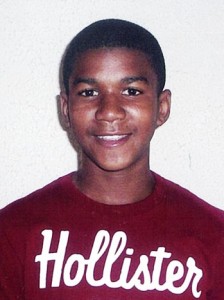 You would have to almost be living under a rock, with no connection to the virtual world, and/or any form of media, to not know some (hopefully accurate) things about the vicious, racist (my words) murder of Trayvon Martin. He was an unarmed 17-year old African-American boy gunned down on February 26, 2012 by 28-year old George Zimmerman, a White Hispanic man.
You would have to almost be living under a rock, with no connection to the virtual world, and/or any form of media, to not know some (hopefully accurate) things about the vicious, racist (my words) murder of Trayvon Martin. He was an unarmed 17-year old African-American boy gunned down on February 26, 2012 by 28-year old George Zimmerman, a White Hispanic man.
It is a disgrace that it took 45-days before Zimmerman was finally apprehended and charged with second-degree murder. It is shameful when we factor that chances are most probable that if Trayvon Martin gunned down George Zimmerman, he would’ve been charged and arrested immediately. After the murder, rather than test Zimmerman for alcohol or drugs, Trayvon Martin’s lifeless, murdered body was tested for drugs and alcohol. Even in death, this African-American boy was presumed guilty and treated inhumanely. When his teenage body was held at the medical examiners office for three days, no official bothered to locate his parents, while his father was frantically looking for him. Apparently, based on Zimmerman’s violent actions and the Sanford police department’s refusal to apprehend Zimmerman, Travyon was guilty of being a teenage Black boy in a predominantly White exclusive community. Some have both referred to and justified Zimmerman murdering Trayvon Martin as an act of vigilante justice. What is vigilante justice in America? Murdering an unarmed Black boy who is in an almost all-exclusive White neighborhood/community without a “pass”? Is it 1912 or 2012? As Robert Jones, Jr., Black gay editor of the Son of Baldwin blog noted in March 2012:
According to America, Michael Vick’s crime was worse than George Zimmerman’s. Dog’s life > Black boy’s life.
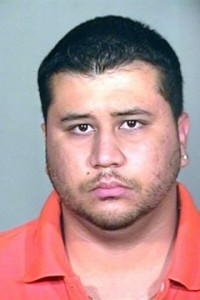 There is no doubt in my mind that were it not for the leadership from leading African-American Civil/Human Rights individuals and organizations, Change.org and ColorOfChange sponsored petitions, local and national rallies and marches across the US, and the alternative and mainstream media keeping their steadfast attention on the fact that up until April 11, 2012 Zimmerman was still a free man, he would still be free. This is one example of a valiant multi-layered campaign to get George Zimmerman charged with the crime of murdering Trayvon Martin. The struggle is far from over. In many ways, we’ve only just begun what will be a long and very possible, unsuccessful journey to ultimately get George Zimmerman convicted. On April 23, 2012, Zimmerman, who was released on $150,000 bail and living in hiding until his trial, entered a written non-guilty plea. It is imperative that we keep our attention steadfast on this case.
There is no doubt in my mind that were it not for the leadership from leading African-American Civil/Human Rights individuals and organizations, Change.org and ColorOfChange sponsored petitions, local and national rallies and marches across the US, and the alternative and mainstream media keeping their steadfast attention on the fact that up until April 11, 2012 Zimmerman was still a free man, he would still be free. This is one example of a valiant multi-layered campaign to get George Zimmerman charged with the crime of murdering Trayvon Martin. The struggle is far from over. In many ways, we’ve only just begun what will be a long and very possible, unsuccessful journey to ultimately get George Zimmerman convicted. On April 23, 2012, Zimmerman, who was released on $150,000 bail and living in hiding until his trial, entered a written non-guilty plea. It is imperative that we keep our attention steadfast on this case.
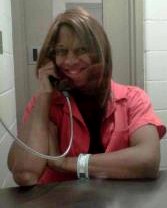
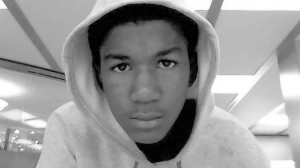 There are clearly stark differences between CeCe McDonald and Trayvon Martin. Trayvon Martin, a straight Black teenage boy was murdered; and CeCe McDonald, a young adult Black trans woman, was brutally attacked, and, in response to defending herself, is fighting for a life outside of the prison industrial complex. The common denominator between both Martin and McDonald, however, is the vicious impact of white supremacist and state sanctioned violence on the lives of Black bodies. I believe it is critical that our national Non-LGBTQ Black Civil Rights organizations and public intellectuals speak and act with the profound understanding that justice should not be fought solely on behalf of Black straight boys and men; but it should be fought for all members in our non-monolithic communities.
There are clearly stark differences between CeCe McDonald and Trayvon Martin. Trayvon Martin, a straight Black teenage boy was murdered; and CeCe McDonald, a young adult Black trans woman, was brutally attacked, and, in response to defending herself, is fighting for a life outside of the prison industrial complex. The common denominator between both Martin and McDonald, however, is the vicious impact of white supremacist and state sanctioned violence on the lives of Black bodies. I believe it is critical that our national Non-LGBTQ Black Civil Rights organizations and public intellectuals speak and act with the profound understanding that justice should not be fought solely on behalf of Black straight boys and men; but it should be fought for all members in our non-monolithic communities.
(to be continued…stay tuned for the concluding part of this four-part article tomorrow.)




Pingback: Who Will Revere US? (Black LGTBQ People, Straight Women, and Girls) (Part 2) | The Feminist Wire
Pingback: Who Will Revere US? (Black LGTBQ People, Straight Women, and Girls) (Part 2) | The Feminist Wire
Pingback: Who Will Revere US? (Black LGTBQ People, Straight Women, and Girls) (Part 2) | The Feminist Wire
Pingback: Who Will Revere US? (Black LGTBQ People, Straight Women, and Girls) (Part 2) | The Feminist Wire
Pingback: Who Will Revere US? (Black LGTBQ People, Straight Women, and Girls) (Part 4) | The Feminist Wire
Pingback: Who Will Revere US? (Black LGTBQ People, Straight Women, and Girls) (Part 4) | The Feminist Wire
Pingback: Who Will Revere US? (Black LGTBQ People, Straight Women, and Girls) (Part 4) | The Feminist Wire
Pingback: Who Will Revere US? (Black LGTBQ People, Straight Women, and Girls) (Part 4) | The Feminist Wire